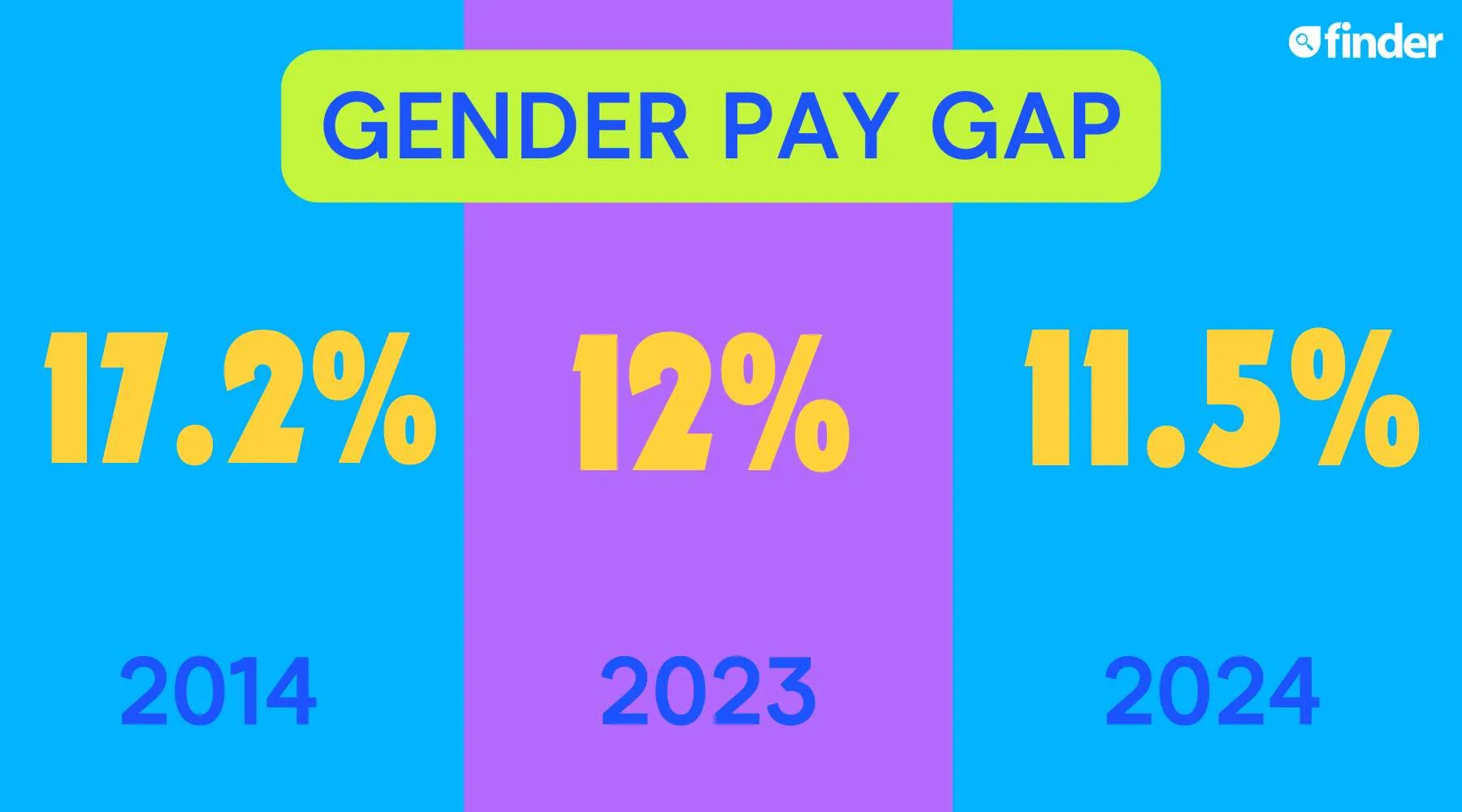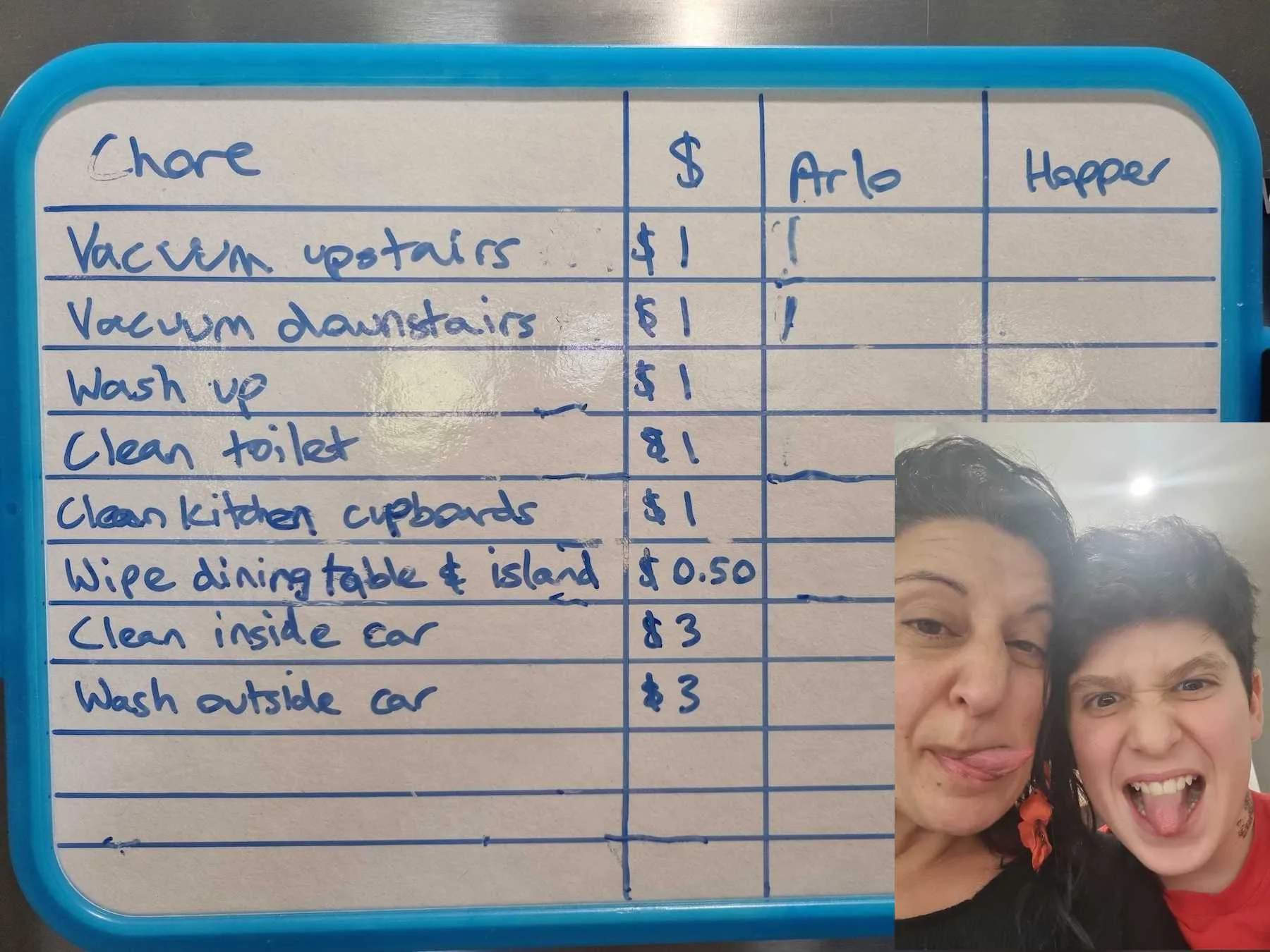The gender pay gap starts with pocket money: here’s the proof

The gender pay gap is falling, new research shows, but it's very much alive and well – and it starts with pocket money.
Parents tend to favour their sons when doling out pocket money, Finder's Parenting Report confirms, with sons getting an average of $10.30 a week, and daughters $9.30 – a yearly difference of $52*.
It's a startling reminder that even though the gender pay gap is shrinking according to the official numbers, we've still got a long way to go to reach pay parity.
This is compounded by the fact that only 58% of Australians believe a gender pay gap exists in Australia.
And only 46% say that they care about it, according to Finder's Equal Pay Day Report, launched today in partnership with UN Women Australia.
Today is Equal Pay Day, marking the 50 days into the new financial year that Australian women need to work to earn the exact same amount, on average, as men made last year.
On the upside, that gap is shrinking: Workplace Gender Equality Agency (WGEA) reports that the national pay gap has fallen to 11.5%, down from 12% last year, and down from 17.2% in 2014.

We've made massive progress in the last decade, but there's still much work to do and families are actually part of the solution. We need to make sure we're taking steps to rebalance the books within our own homes.
As we celebrate the gender pay gap falling for the fourth six-month period in a row, I spoke to some Aussie parents about the pocket money situation in their own households to see how that journey is taking shape:
The budding investor
"I pay a mighty $5 a week for each kid. Austin saves his; my daughter spends hers as soon as she can. They both have the Spriggy app and spriggy cards. Austin is very interested in his funds. He came up with an idea to lend his sister $5 if she paid him $10. She agreed, but, while I was kinda proud of his thinking, I told him that this was not allowed in our family (or country) because it was taking advantage and the interest rate was too high. I then found myself talking to a 7-year-old about interest rates, loan terms and other financial concepts. I wish they taught this at school." – Josh Lewen**, father of a primary-school aged son and daughter
Chores for change

"My kids have to do chores to get pocket money. Loading the dishwasher, sorting laundry, the older one babysitting the younger one, that type of thing. Henry gets $10 a week but can earn up to $20 if he does extra. Oli gets $20 because she's a teenager and she goes out more. TBH, it's not really enough for her to go out and save. She gets $15 for babysitting at night and $10 for daytime, and $20 for an hour of tutoring. I have no idea how this compares to others but it's what I think it's worth." – Alex Dalrymple, dad to a 10-year old boy and 14-year-old girl
What a charmer
"We pay all our kids the same, except that our middle child somehow managed to convince us to pay him extra each week with the promise he would do the most chores. It's been a year, and he is the worst at chores, and charms or negotiates his way out of everything. We don't have a gender pay gap, it's about who has the most persuasive speech! On a more serious note, we've always given our kids pocket money to learn the value of money and how to spend / save / give. They get the pocket money no matter what, but we expect them to pay for small items out of their own money, and to be helpful 'family contributors', which means doing their share of work around the house." – Pauline Hatch, mum of 2 sons aged 16 and 13 and a daughter aged 9
Working hard for the money

"I make both my boys do chores to earn pocket money. I make them work for it! Arlo is 11 and Hopper is 6. I don't want my kids to be spoiled and I'm conscious of ensuring they have a strong work ethic. If they want something, beyond their basic needs, they need to earn the money to pay for it." – Natalie Brownstein, mum to 2 boys
Spending vs saving
"My daughter is 19 years old and her brother is almost 17. She calculated that over the last 2 years before she graduated high school, I gave her $2,587 and I gave $4588 to her brother for the same period. This is over and above their monthly allowance, which is $100 each per month, and that's to pay for things like subscriptions; the debits come out of their bank accounts, so they've had to learn to always have money in their account. I think the discrepancy is because she never really asks for money unless she's going out, and she doesn't go out as much as her brother. She also saves more, so she would save her allowance whereas he would spend it all really quickly and would keep asking us throughout the month for more. She's now at uni and working, earning her own money and saving well. They have to do their chores, that's non-negotiable... but there is a lot of nagging that comes with that!" – **Shiva, mother of two teenagers
Starting a solid savings habits with your kids when they're young can seriously boost their wealth as they get older. Compare the best savings accounts for kids today
* research based on parents of kids aged under 12.
** Names changed at interviewee's request.
Sources
Ask a question
